|
Hospitalisation and intensive care
The clinic has 4 stalls dedicated to intensive care and foals. The treatments are carried out 24/24 by veterinarians present at the clinic.
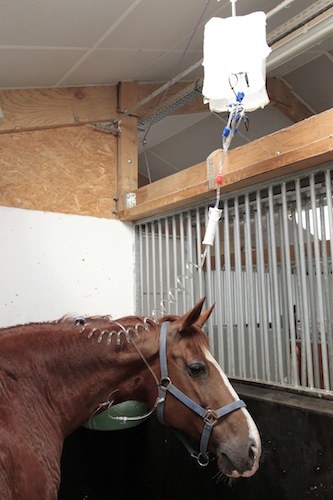 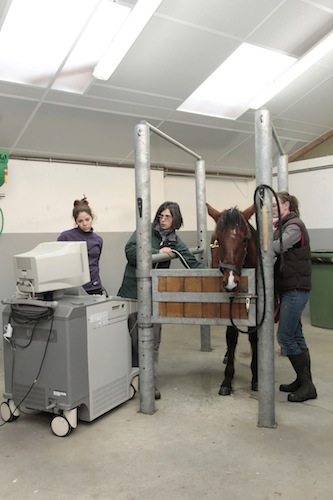
Isolation
The isolation unit allows to separate the contagious animals from the rest of the hospital. The building has 4 stalls with 2 for mares and foals. To facilitate monitoring of horses hospitalized in intensive care, the boxes are equipped with a camera system. One stall has a hoist for the management of neurologic disease. Each stall is completely separated from the others and has a sas, a sink, a small pharmacy and specific clothes.
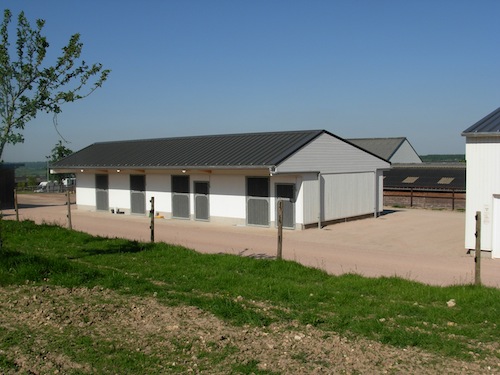 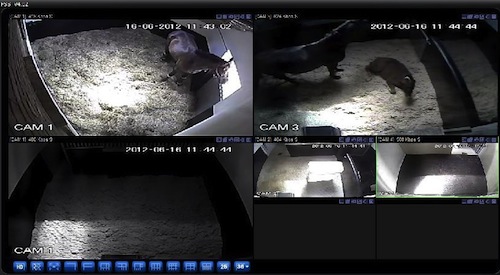
Respiratory and cardiac disorders
Respiratory problems are a common cause of non-performance in the race horse and in the sport horse. Endoscopy is frequently used to observe the upper respiratory tract (nasal cavity, pharynx, larynx) and the trachea and the bifurcation of the bronchi. Endoscopic examinations during exercise using an dynamic respiratory scope (DRS) are now feasible at home for race horses (with the system attached to the sulky or back of the jockey) and for sport horses (with the system attached on the back of the rider). Endoscopic examinations during exercise reproduce the maximum inspiratory and expiratory pressures which allows the diagnosis of certain diseases that may be undiagnosed using endoscopic examination at rest. Moreover, working conditions (bending head ...) are the same as in the usual exercise. The generator can produce radiographic images of the head and lungs of high resolution.
Heart diseases are uncommon. In this case, the examinations of choice are the electrocardiogram (ECG) and echocardiography. The ultrasound system used is equipped with electrocardiogram electrodes and a system of colour Doppler to visualize blood flow. An electrocardiogram is also available for recording at exercise (Televet).
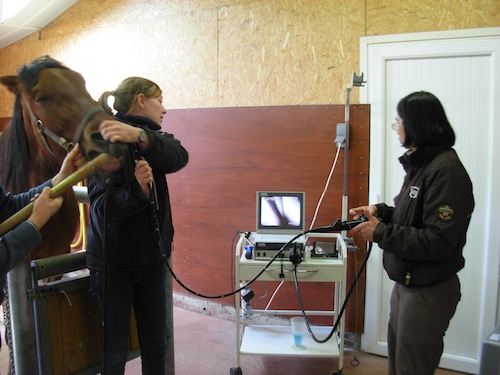 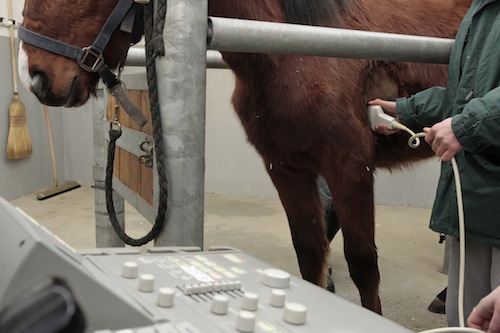
Digestive disorders
Weight loss and chronic colic are rare but it is often difficult to determine the cause without further investigation. The examinations of routine (transrectal palpation, blood test, dental examination ...) can be achieved easily. Depending on circumstances, additional tests may be performed (abdominal ultrasonography, biopsy ...). Gastroscopic examinations for the diagnosis of gastric ulcers are routinely performed at the clinic.
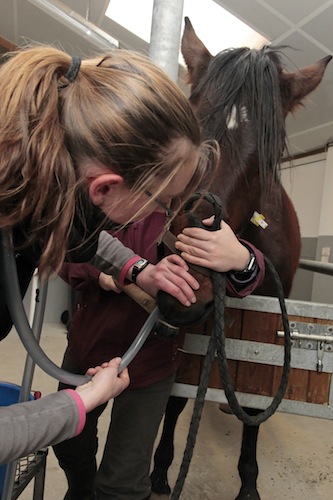 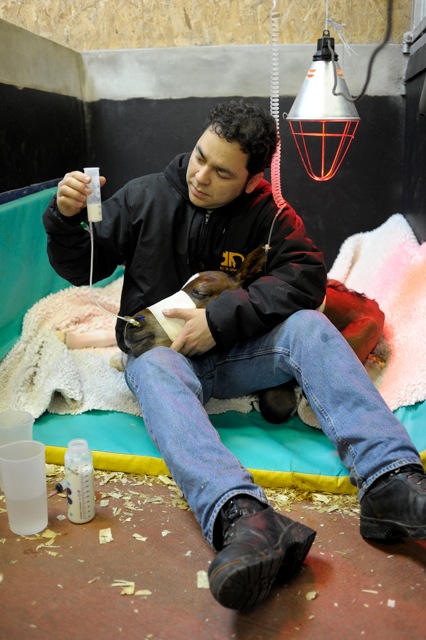
Neonatology
The sick newborn foals require intensive care in order to obtain a better prognosis. The clinic has four stalls mother-foal to isolate the foal to achieve critical care of the most serious cases. In addition, the clinic has many stalls which can accommodate foals and their mothers.
The stalls are equipped to achieve the care of newborns: heating pads, perfusion, pulmonary ventilation, cardio-respiratory monitoring. The laboratory is located close to achieve urgently needed analysis. The foals are monitored 24/24 by veterinarians.
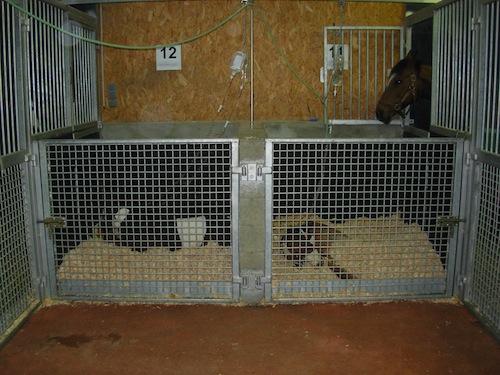 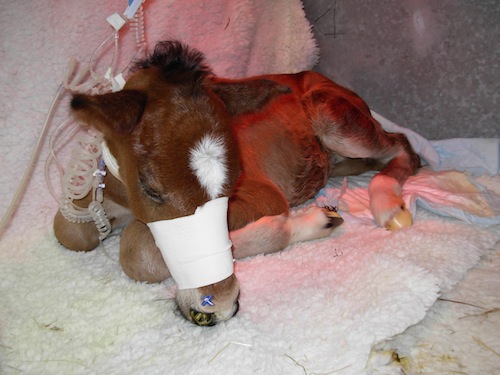
Neurology
The clinic has a stall with a winch to lift and maintain the horses in recumbency.
Ophthalmology
The diseases of the eye are common in horses. Emergency admissions are mainly lacerations of the eye or severe eye pain. Many conditions require very frequent treatments (between 4 and 6 times a day), making the hospitalisation indicated.
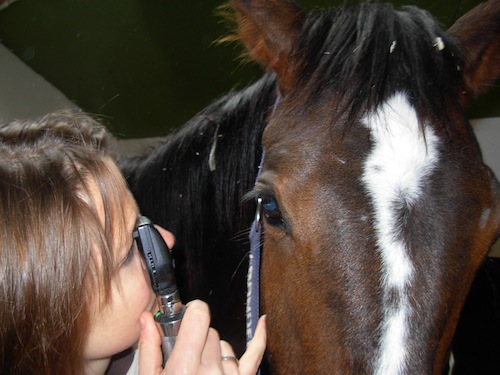
|
 Internal medicine
Internal medicine